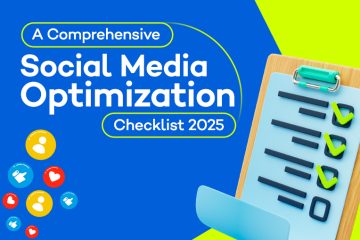SEO is constantly evolving and all professionals must constantly adjust their respective strategies to get the most out of search engines. SEO trends 2024 are no exception: you will have to adapt your content marketing to please Internet users, as well as search engines.
Ideally, get help from an SEO consultant to optimise your strategy.
What does 2024 have in store for you in terms of SEO?
EEAT criteria, position 0, user experience, AMP, Google Helpful Content Update, conversational keywords… Discover the elements to integrate or improve for high-performance content!
Perform an SEO audit
Before you try to follow all the latest SEO trends, have you thought about carrying out an SEO audit of your site? Following the latest trends is good, but starting from a healthy base is even better!
Depending on the type of site you have (e-commerce, showcase, number of pages, etc.), the price of your audit can vary from single to double
Try to receive in a few minutes a price range based on the specifics of your website. If you get help to improve the SEO of your site, your service provider will be able to advise you on the most suitable SEO trends to achieve your goals.
1. Quality content, adapted to Google EEAT criteria
The better the content you create, the more people will read and, more importantly, come back to enjoy your content. The more enjoyable the experience is for visitors, the higher your ranking will be.
So, if you want to please Google, without sacrificing reading quality for Internet users, adapt your articles to the significant EEAT criteria:
Experience : a criterion that appeared in December 2022, Google evaluates whether the content creator has experience on the subject covered. To find out, the search engine can evaluate the reviews posted (proving that the author has already used a product or service related to the theme of the content), as well as test publications on social networks or a blog, for example.
Expertise : Here, Google determines the level of expertise of the author and the site. How long has the content creator been talking about the topic/site in existence?
Authority : Authority is one level above expertise. Algorithms will look for evidence of authority: awards, columns or press coverage, high-level backlinks, etc.
Trustworthiness : Is the author clearly displayed? Is the site known to be reliable? This is what this factor will determine.
The goal of this Google EEAT is to offer solid, verified content from reliable sources to Internet users.
So what does quality content that meets Google EEAT factors look like?
- It contains at least 1,500 words.
- There are titles, subtitles, images, tables, bullet points, quotes, videos…
- It links to other pages on the website.
- It contains useful information and links to external reference sources.
- It is signed by an identified author and expert in his field.
- It’s optimised so that Google understands what it’s about.
- The formula for success is based on a natural way of writing by using keywords sparingly.
2. Semantic search, still an essential SEO trend
It’s about knowing how and why your users search. What answers, information, content or even experiences are they looking for?
There are simple principles you can follow in your editorial planning .
- Write for people, not search engines. This means developing content that is relevant, concise, and written in easy-to-understand sentences. Include bullet points and lists that make it easy for people to scan and find the information they need. Finally, write naturally!
- Implement contextual internal linking on your website. Internal linking goes beyond creating logical click paths to related topics for your users. Done strategically, internal linking creates a data-rich, well-structured map of related content around a central topic or search term.
- Optimise content for topics rather than keywords. One strategy is to create clusters of valuable content around a top-level topic. A topic cluster around SEO, for example, might include subtopics on technical SEO, on-page SEO, or backlinks. By building and optimising topic clusters, you naturally create a connection between short- and long-tail keywords , which lends itself well to higher rankings.
- Use structured data (where it makes sense). Using a product, question, article, ranking, or review helps crawlers find and understand your pages more easily. Search engines love this, especially for Rich Snippets!
3. Rich Snippets
Rich Snippets aim to enrich the results that appear when a user performs a Google search.
When you ask a question on Google, a “ no-click result ” appears at the very top of the first page of search results. This box contains an image and an answer to your question, so you don’t have to click to get to an article.
Not only are Rich Snippets useful, they account for about half of all clicks on Google’s search engine, which is huge!
Bad news: It’s not you, but Google’s automated algorithms that choose which content on a page to promote as a “Featured Snippet.”
Good news: You can create in-depth, informational content that’s easy to read. This content will be more likely to become a snippet.
Google’s algorithms typically select content that quickly answers specific questions. Consider doing research and building content around it.
Providing useful information that will be used in these snippets of content shows that your website contains valuable content. The trick is to provide enough useful information to be included, while still enticing the searcher to click through to your website for more details. Present the information in bullet points and HTML tables that are easy for a computer to understand.
4. Core Web Vitals and User Experience
Improving the visitor experience on your website is important to keep them coming back… but also to improve your search engine ranking!
In fact, Google factors in UX signals into its rankings, thanks to the famous “ Core Web Vitals .” These are a set of real, user-centric metrics that quantify key aspects of the user experience. They measure loading time, interactivity, and content stability while loading, among other things.
By measuring these signals, Google is therefore placing more emphasis on “pleasant” experiences for Internet users – fast pages, on an easy-to-use site, and which are accessible on all devices and platforms. Sites that offer a good UX will be rewarded with better visibility in searches.
5. AMP and mobile accessibility
Your pages must be optimised for smartphones: don’t forget that Google has deployed its ” Mobile first ” index!
Indeed, the number of page views on mobile is through the roof and it’s not over: 60% of web traffic is mobile. Not having a site perfectly optimised for smartphones cuts you off from this traffic…
However, adapting your desktop site for mobile is no longer enough. The user experience differs between a smartphone and a computer. It’s time to think about AMP! This format, which has been discreet in recent years, still exists. Accelerated Mobile Page technology allows your pages to be displayed optimally to users and improve your ranking in mobile results. It’s high time to adopt it…
6. Google Opposum and local SEO
46% of Google searches have local intent.
Local SEO remains an essential SEO trend to attract visitors to your store or prospects to your business. The Mountain View firm continues to update its Google Oppossum algorithm for local search. In close connection with Google Maps, it offers establishments that are located as close as possible to the geographic area of the Internet user.
If you are in an area where your catchment area is limited, you can no longer ignore local SEO. Also, consider registering on Google Maps to be referenced!
7. Google Helpful Content Update
In August 2022, Google rolled out its Helpful Content Update algorithm. It became effective for France in early December 2022. This is an update that will impact the writing of your pages. In addition to usefulness and reliability, the search engine now wants to “satisfy” its users. To do this, it will reward content that offers a positive experience to Internet users.
But how do you measure visitor satisfaction? Google will rely on many criteria already used in its other algorithms to judge the overall experience of the Internet user:
- Content created for humans, not search engines;
- A topic and solutions adapted to the target audience;
- Content relevant to the main topic or domain of the website,
- A text written by authors with established authority and expertise;
- Content treated in a deep, fair and reliable manner.
- Once again, the quality of the content plays a key role in SEO. Focus on useful articles with high added value, written by an expert on the subject, to rank!
8. Artificial Intelligence and content writing
Despite the fight against automatically generated content, the use of Artificial Intelligence will explode even more in 2024. All the more so with the ChatGPT phenomenon, a conversational robot that can save time… but not replace the human editor .
Google will certainly increase its monitoring of the use of AI in content production. It will be difficult to fool it by simply copying and pasting (often poor quality) content generated by AI.
If you want to take advantage of automated content writing tools, do it smartly to:
- Find a list of relevant keywords;
- Receive content summaries to refine your own text;
- Edit a content plan;
- List ideas for your next articles;
- Document your article by easily obtaining key figures, studies, statistics and reliable sources.
9. SMO to boost SEO
SEO has always been synergistic with other methods such as SEA (paid SEO) or SXO (user experience). With social networks gaining ground every year, it is obvious that SMO (Social Media Optimization) and SEO are complementary!
Let us recall that in the ranking factors, particularly in the EEAT criteria, there is expertise and authority. Two qualities that can be boosted by social networks. If an author or a company has a large community engaged on social platforms, this will encourage Google to better rank its content.
Similarly, by sharing your links on these channels, you increase traffic to your pages, while diversifying it. However, the diversity of acquisition sources and the volume of visits count in ranking factors.
10. Make way for conversational keywords!
According to the Voicescore Barometer launched by ADN.ai, NRJ Global and La Poste, 69% of French people use voice commands and 90% do so from a smartphone.
The use of voice assistants and smart speakers is growing, but voice searches tend to be longer and more specific than text queries.
So you will need to consider these types of searches in the future and integrate more conversational keywords into your content to please the Google Bert algorithm:
- Target long tail keywords;
- Research the questions most frequently asked by your audience;
- Analyze the formulations and expressions used by your target;
- Detail your content with adjectives, adverbs and geolocalized terms;
- Specify the search intent: buy, request a quote, go to…
The SEO trend of 2024 must please Google’s algorithms by giving them what they want: websites with quality content, which will satisfy users thanks to an optimized UX. A crucial point if you want to win the best SEO agency title! Take care of your long tail, add value to the content and adapt your writing to adopt conversational language, in order to strengthen your SEO positions.





0 Comments